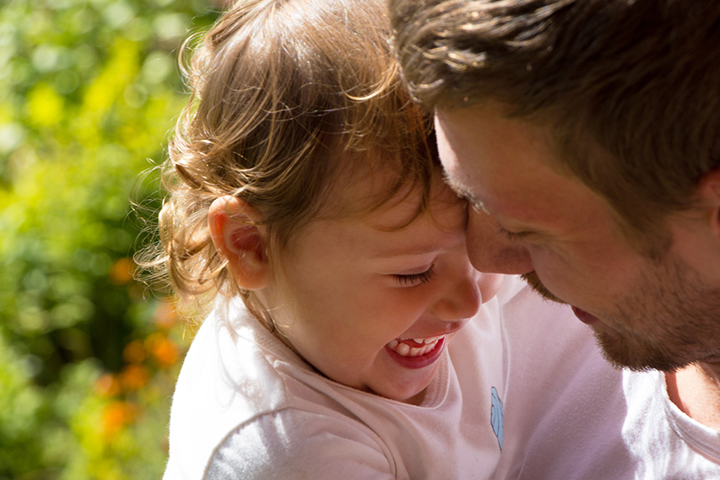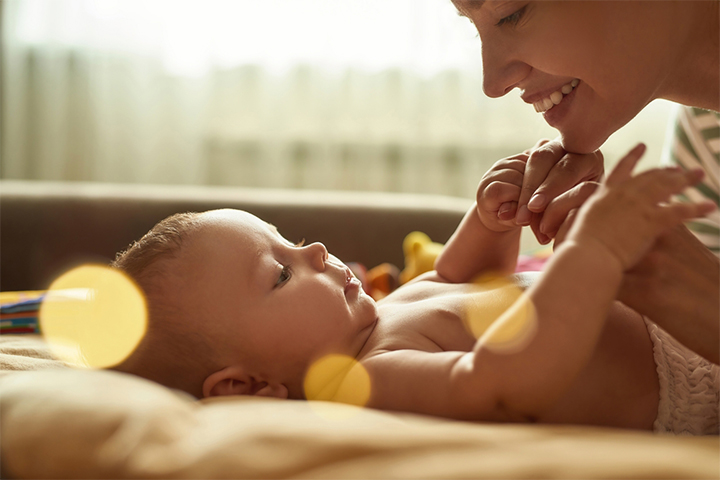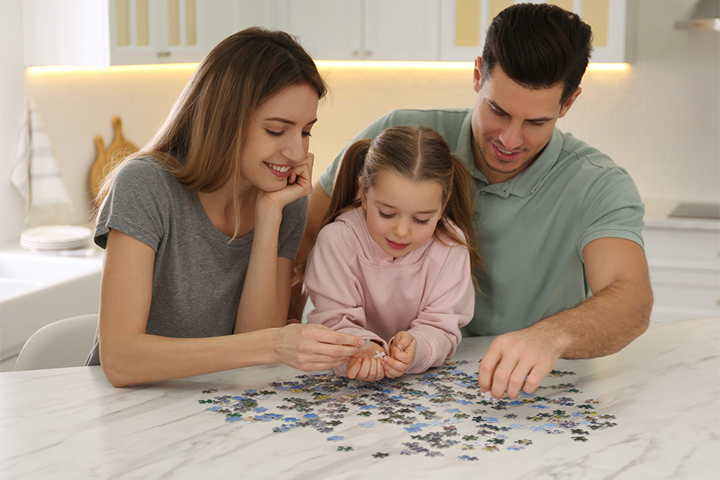
Image: Shutterstock
Attachment parenting is a refreshing change from what was earlier thought to be the ideal way of parenting. While showing affection and being lenient on the kids was considered spoiling the child, thankfully, attachment parenting contradicts this view in every way possible. Attachment parenting aims to give empathy and response to the child while maintaining physical closeness and intimacy. Here in this article, we have discussed the benefits of practicing attachment parenting and how it differs from other parenting styles. Read on!
1. Mutual Giving
Image: Shutterstock
It has been observed that babies respond positively to their parents’ generosity. Tiny, subtle bursts of happiness can be felt whenever your baby grins or looks at you lovingly. Seeing the world through a child’s fresh eyes is awe-inspiring. Similarly, knowing that your presence and the comfort of your arms are all your baby needs to feel safe again, is definitely rewarding.
2. Mutual Shaping
Image: Shutterstock
When a mother nurses her baby, her body releases a calming hormone called prolactin (1). This helps them grow closer to each other. In the same way, spending time with your baby and developing a physical connection also helps you and the baby born and progress emotionally together.
3. Mutual Sensitivity
Image: Shutterstock
Attachment parenting has shown to positively affect children’s behavior and personality development on both sides. Realizing that parenthood will forever alter your life, you hope the shift will be for your betterment. Your infant has the potential to affect you in some way. Learning a language with your infant is an excellent illustration of mutual molding. The first words an infant learns to say are those of need. Likewise, your baby’s first means of communication with you are his cries and smiles, both of which reinforce your reactions to his demands.
4. Individuation
Image: Shutterstock
An emotionally connected toddler strikes a balance between their desire to have the safety and satisfaction supplied by the parents and the urge to explore and experience new surroundings, as they move from oneness to a process known as “individuation.” When playing in a new environment, a mother’s “go ahead” signal can reassure her child and encourage them to feel comfortable exploring and navigating unfamiliar surroundings.
5. Children Develop Better Social Skills
Image: Shutterstock
Babies that are securely attached have fewer crying spells. In addition, they have fewer symptoms of colic, fussiness, whining, and clinginess (2). This is based on the apparent fact that a baby will only behave appropriately if in a good mood. When a caregiver responds appropriately to a baby’s cues while holding him or her, the infant gains a sense of security and belonging. In addition, when a baby is content, they tend to fuss less.
6. Improvements in Child Growth Due to Attachment Parenting
Image: Shutterstock
Babies who are carried, nursed on demand, co-slept with, and reacted to gently never cease to amaze us with their contentment. Because attachment parenting encourages a condition of peaceful attentiveness, children who practice it report feeling better emotionally, behaving better, and developing more normally.
7. Kids Are More Organized
Image: Shutterstock
Attachment parenting’s positive impacts on development may be summed up in one word: structure. A well-organized infant attachment. Babies in the first few months of life put a lot of effort into getting themselves organized or adapting to life outside the womb. For a connected infant, the womb experience continues for a while after delivery. Parents who are emotionally and physically present for their infants have a critical role in shaping the child’s development throughout several domains. Parents play the role of energy conservators, channeling their child’s enthusiasm for things like learning and development rather than negative expressions like fussing and worry.
8. They Develop Better Emotional Intelligence
Image: Shutterstock
The practice of attachment parenting is like a nutritional supplement for the mind. In the first year of life, the brain doubles in growth and is around 60% of its full adult size (3). Miles and miles of electrical “wires,” or neurons, are intertwined in the developing brain. The newborn has a lot of loose ends in its wiring. These neurons develop over the first year, becoming more extensive, more efficient, and connecting with one another to finish circuits that increase the baby’s capacity for thought and action. Lack of communication between nerve cells is fatal. Brain development improves with increased connectivity.
Parenting is a unique experience; even if you pick your parenting style, it should have your unique blend. Every child is different and should be considered what suits them best. So, which way of parenting do you like the most? Let us know in the comments section!




















